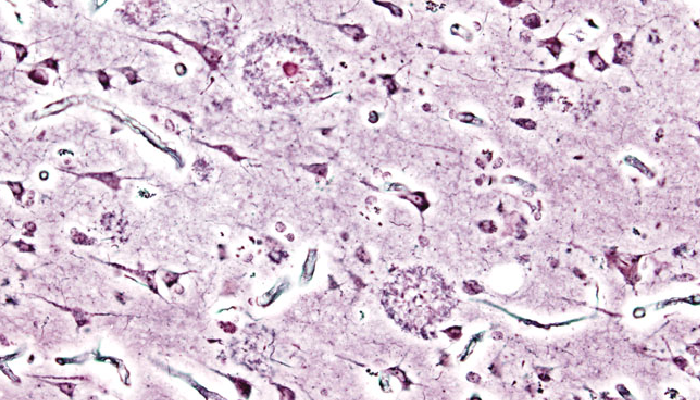
User:KGH, CC BY-SA 3.0 http://creativecommons.org/licenses/by-sa/3.0/, via Wikimedia Commons
A recent study published in JAMA Ophthalmology has shed further light on the link between visual impairment and dementia risk among older adults.
The researchers selected a nationally representative sample of 2,767 adults aged 71 or older from the National Health and Aging Trends Study (NHATS) and found a 32.3 percent prevalence of at least one vision impairment. Looking at this data, the researchers calculated that 19 percent of dementia cases could be attributed to vision impairments, marking vision loss as a notable contributor to dementia risk. Notably, contrast sensitivity impairment was associated with the largest population attributable fraction (PAF) of 15 percent; near acuity and distance acuity impairments were linked to 9.7 percent and 4.9 percent of dementia cases, respectively.
The study goes on to note that, because previous literature has evidenced that vision impairment increases more greatly in various subpopulations, the risk of dementia can be viewed as being more pronounced in these specific demographics. For instance, women and non-Hispanic White individuals were noted to have a higher PAF of dementia from vision impairments when compared with men and non-Hispanic Black individuals. Additionally, the PAF was higher for adults aged 71 to 79 compared with those aged 90 and older, suggesting that addressing vision impairment earlier in life could have greater potential for reducing dementia risk.
Although further examination is suggested by the researchers, they emphasize the importance of considering vision health as a modifiable dementia risk factor. The authors also note that previous studies likely underestimated the total impact of vision impairment on dementia because they only considered distance visual acuity.
Though the study does not establish a direct cause-and-effect relationship between vision loss and dementia risk, it does highlight the potential of reducing dementia cases through better vision care in aging populations.
